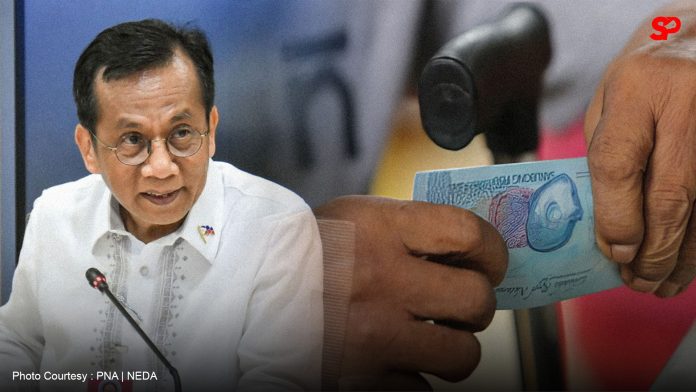MANILA – The Marcos administration is “balancing” its public spending and looking at a “broader” perspective to sustain the country’s economic progress, Socioeconomic Planning Secretary Arsenio Balisacan said Thursday.
Balisacan issued the statement, as he defended the government’s handling of state funds following former president Rodrigo Duterte’s concern over the alleged depletion and malversation of funds of government financial institutions (GFIs), including the Philippine Health Insurance Corporation (PhilHealth), the Government Service Insurance System (GSIS) and the Social Security System (SSS).
Duterte also claimed that the country is currently in a state of “hemorrhage” under the watch of his successor, President Ferdinand R. Marcos Jr., saying that the current administration is more focused on distributing short-term aid instead of investing in long-term projects.
In a Palace press briefing, Balisacan said government funds, including those from GFIs, are intended to be used for “productive beneficial projects.”
“Those funds have actually now been used but broadly, yes,” Balisacan said, when asked if the PhilHealth, GSIS and SSS funds have been utilized for the implementation of infrastructure projects and distribution of assistance to Filipinos in need.
“They are meant to address the need for funding for those projects that have been identified and programmed for implementation within the year, to the extent that they are now in our program that has been well vetted by the economic managers, by the implementing agencies, and of course, by Congress. So, if they went to those areas that should be okay,” he added.
Infrastructure development and human capital development are “long term investments” that could propel growth in the country,” Balisacan said.
He added that the emergency assistance serves as a “safety net for those who suffer or face shocks like those coming from calamities or unfortunate incidents.”
“We look at the spending, public spending in broader context. We look at the medium term, we look at the short term because you can’t have for example, put all our baskets in the near term because we also need to grow so that we can sustain the progress that we have made in the near term,” Balisacan said.
“So that’s the balancing that we have to do. And infrastructure development for example is key to that, and so is human capital development like health and education.” (PNA)

